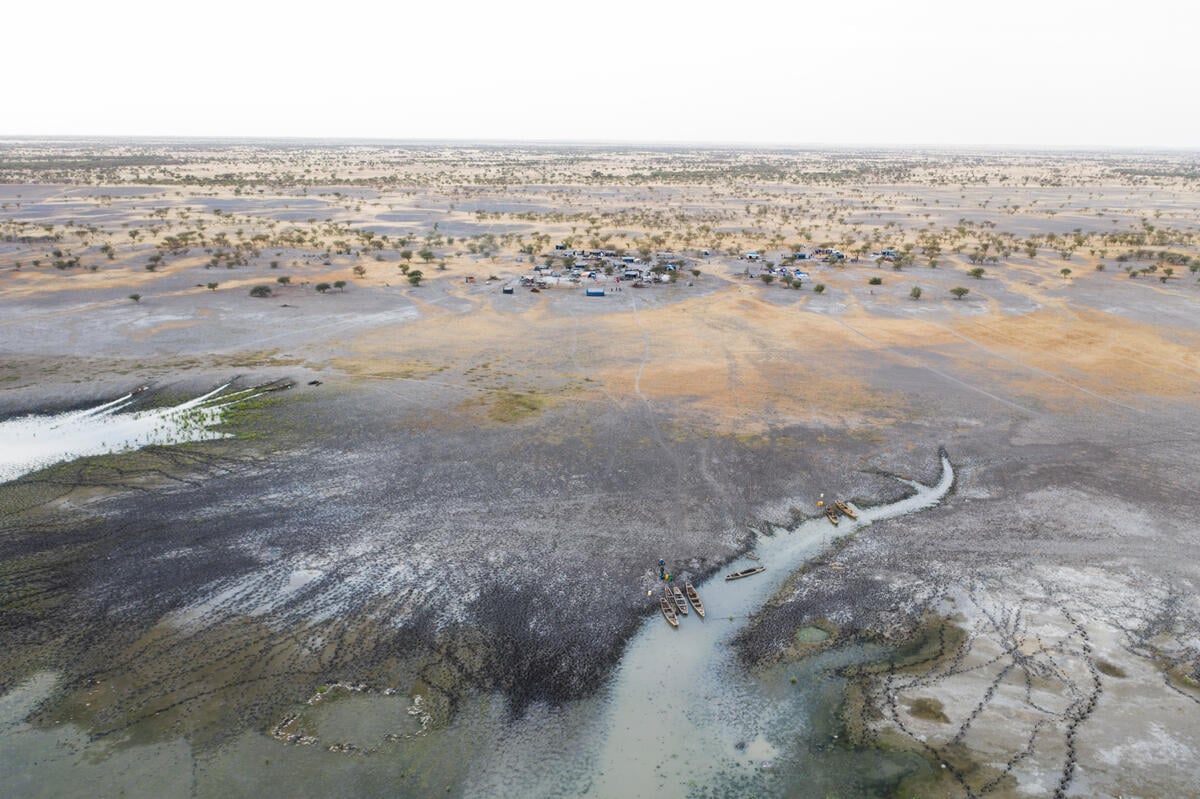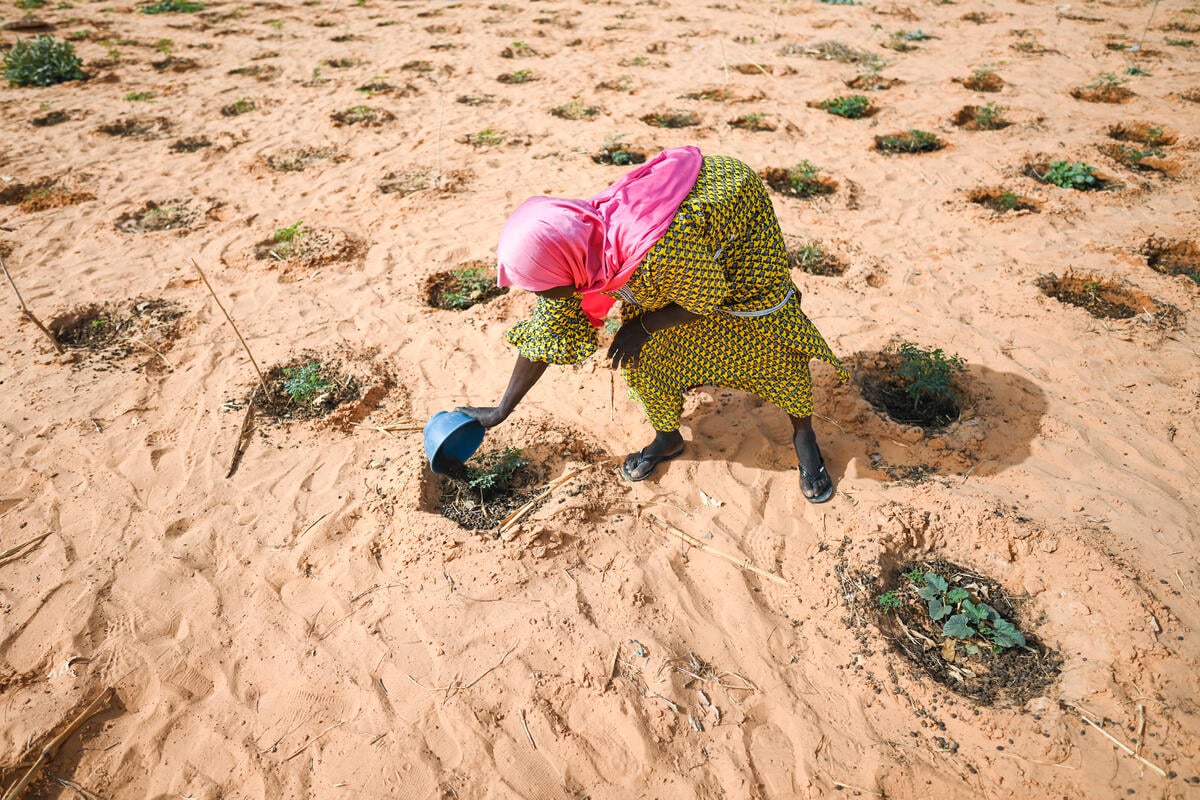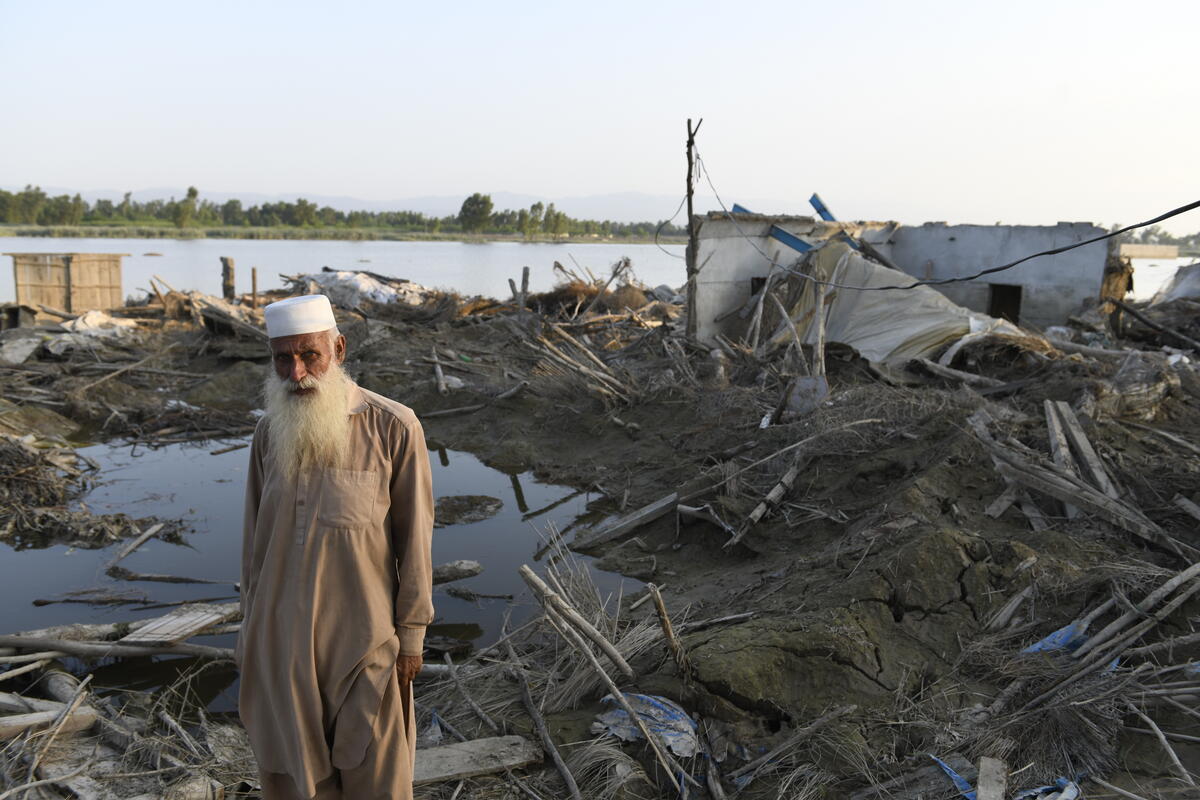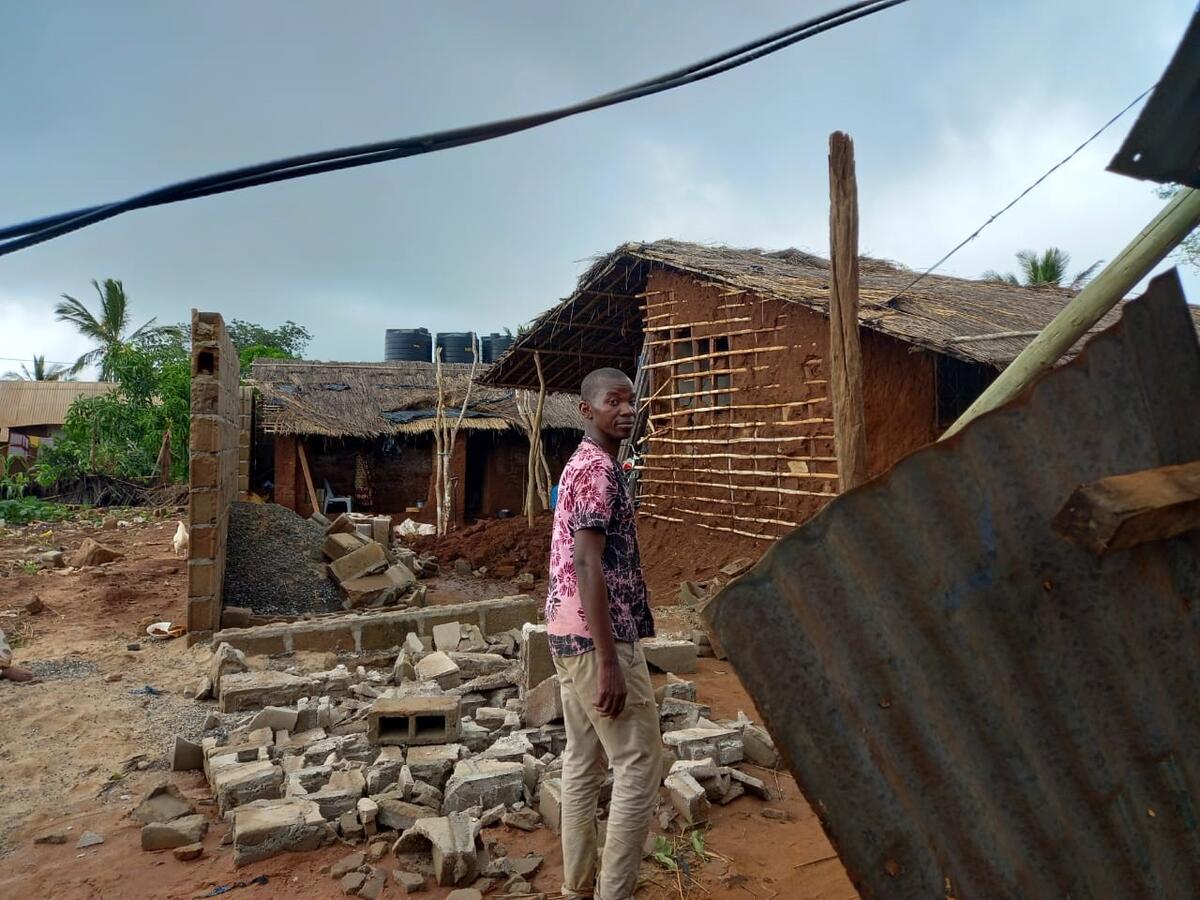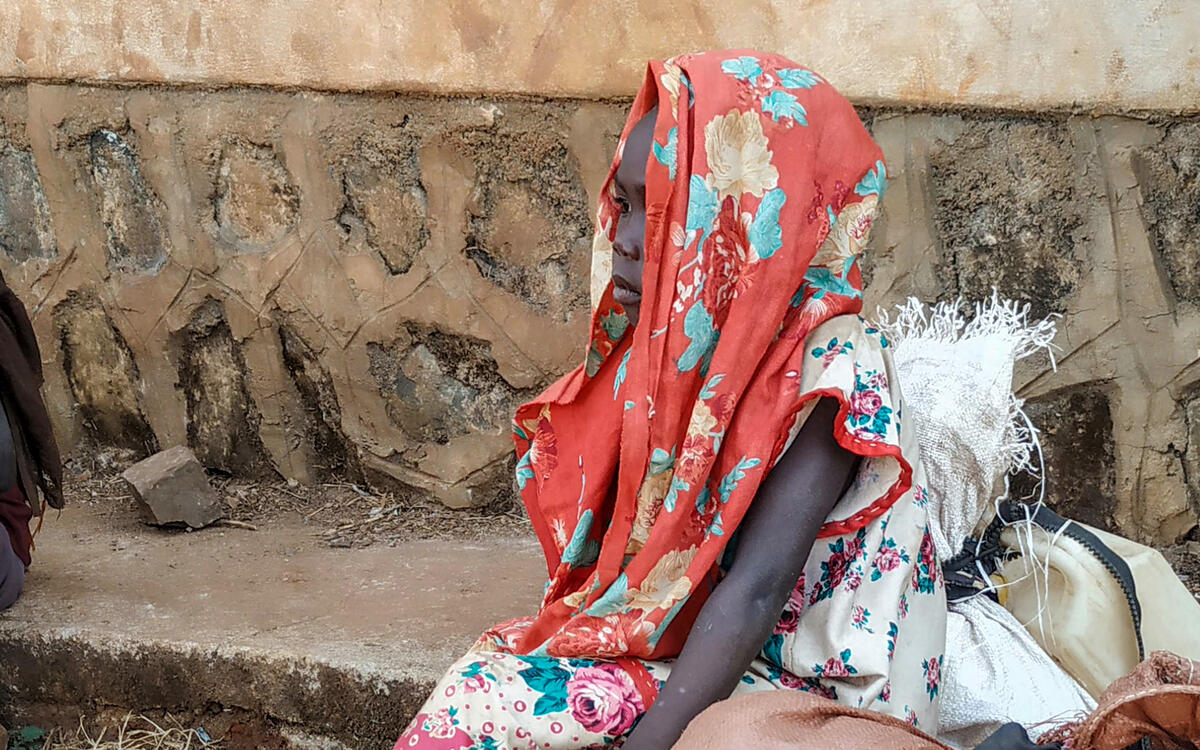Aid workers rushing to rebuild Kakuma Camp before new rains arrive
Aid workers rushing to rebuild Kakuma Camp before new rains arrive
KAKUMA CAMP, Kenya, Nov. 9 (UNHCR) - Aid workers at Kakuma Camp in north-eastern Kenya are working urgently under overcast skies to provide new shelters for thousands of refugee families left homeless by torrential rains last week.
Although the four days of rain that destroyed more than 7,000 huts and left two young boys dead have subsided, refugee workers said they were racing against time to relocate some 23,000 people whose tukul huts of mud brick and plastic sheeting were destroyed.
The two young Somali boys who drowned in the floods were apparently caught by rising waters as they tried to cross a river from one part of the camp to the other.
Teams of aid workers have been putting up new shelters at a rate of sixty a day in an unaffected portion of the site. Construction is expected to accelerate with the delivery Friday of more building materials. In addition, work on extending the camp's clean water system to the new area were scheduled to be completed Friday. Eight banks of new latrines have been dug thus far to replace facilities that collapsed in the downpour.
As an emergency measure, UNHCR has also distributed two plastic sheets to each of some 2,500 families whose roofs collapsed but whose homes can be rebuilt. The agency is bringing in another 2,000 plastic sheets from a regional stockpile, but said it will need around 5,000 more to meet immediate needs and to reconstitute the camp's emergency supply.
Over 100 families remained in community centres Friday, while most refugees have been able to move in with neighbours or friends on a temporary basis. UNHCR's priority has been to relocate families headed by women or who are unable to reconstruct their own houses.
A team of non-governmental organisations and UNHCR health experts have warned that further rains would require a broad immunisation of the camp's population of 81,000 mainly Sudanese refugees because of the heightened risk of cholera, respiratory diseases and malaria.

